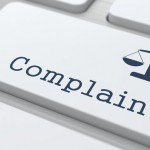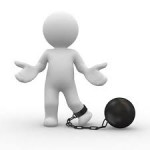 Your medical practice is thriving, and you have earned the trust and respect of thousands of patients. Except for one. This former patient was very unhappy with the care you provided. So dissatisfied was this patient that he decided to put up a scathing one-star review of you and your practice on Yelp! and other websites; a review rife with insults and factually incorrect statements. You cannot abide by this unjustified stain on your reputation, so you respond to the patient’s review on the very same sites. You share some of your own choice words about the patient, and you also correct the record about the care you provided. But in doing so, you also revealed confidential medical information about the patient, who promptly informs the Illinois Department of Financial and Professional Regulation (IDFPR) about your breach of confidentiality. Instead of letting the patient’s rant go unanswered, you now have to answer a complaint from the IDFPR that threatens your license and your practice.
Your medical practice is thriving, and you have earned the trust and respect of thousands of patients. Except for one. This former patient was very unhappy with the care you provided. So dissatisfied was this patient that he decided to put up a scathing one-star review of you and your practice on Yelp! and other websites; a review rife with insults and factually incorrect statements. You cannot abide by this unjustified stain on your reputation, so you respond to the patient’s review on the very same sites. You share some of your own choice words about the patient, and you also correct the record about the care you provided. But in doing so, you also revealed confidential medical information about the patient, who promptly informs the Illinois Department of Financial and Professional Regulation (IDFPR) about your breach of confidentiality. Instead of letting the patient’s rant go unanswered, you now have to answer a complaint from the IDFPR that threatens your license and your practice.
The foregoing, based on an actual case, is just one example of the traps doctors can fall into with their use of the internet and social media. Over the past decade, breaches of online professionalism standards have been the subject of increasing scrutiny and disciplinary action by state medical boards.
A national survey of state medical boards revealed that the most common online activities that led to disciplinary proceedings against physicians were:
- inappropriate patient communication online, including sexual misconduct
- use of the internet for inappropriate practice, such as internet prescribing without an established clinical relationship
- online misrepresentation of credentials
- online violations of patient confidentiality
- failure to reveal conflicts of interest online
- online derogatory patient remarks
- online depiction of intoxication
Most boards indicated that incidents had been reported to them by patients or their families, although reporting by other physicians was common as well.
While the Illinois Medical Practice does not list any online conduct as one of the 43 specified bases for physician discipline, it doesn’t need to. As the authors of the above-referenced study put it, the problems that doctors get into with the internet and social media are just “online manifestations of serious and common violations offline, including substance abuse, sexual misconduct, and abuse of prescription privileges.”
In 2013, the American College of Physicians and the Federation of State Medical Boards issued guidelines on online medical professionalism. It addresses many aspects of social media and internet use by physicians, but the single best recommendation may be this:
Pause before posting. Trust yourself, but pause before posting to reflect on how best to protect and respect patients, their privacy, and your professional relationships and responsibilities. It is helpful to think of the use of social media as a public speaking arrangement in which everything is recorded and shared.
Louis R. Fine: Chicago Physician License Defense Attorney
Throughout my career, I have been protecting the livelihoods and professional futures of physicians and other health care providers before the IDFPR, combining insight and experience with zealous and strategic advocacy.
The moment you are contacted by IDFPR or learn that you are under investigation is the moment that you should contact me. I will immediately begin communicating with IDFPR prosecutors and work with you to develop the strategy best suited to achieving the goal of an efficient, cost-effective outcome that avoids any adverse action. Together, we will protect your Illinois physician’s license and get you back to your patients and your career.
Please give me a call at (312) 236-2433 or fill out my online form to arrange for your free initial consultation. I look forward to meeting with you.




 ind yourself on the receiving end of a complaint, the subject of an investigation, or facing a disciplinary proceeding before the Illinois Department of Financial and Professional Regulation (IDFPR), don’t bother defending yourself.
ind yourself on the receiving end of a complaint, the subject of an investigation, or facing a disciplinary proceeding before the Illinois Department of Financial and Professional Regulation (IDFPR), don’t bother defending yourself.




